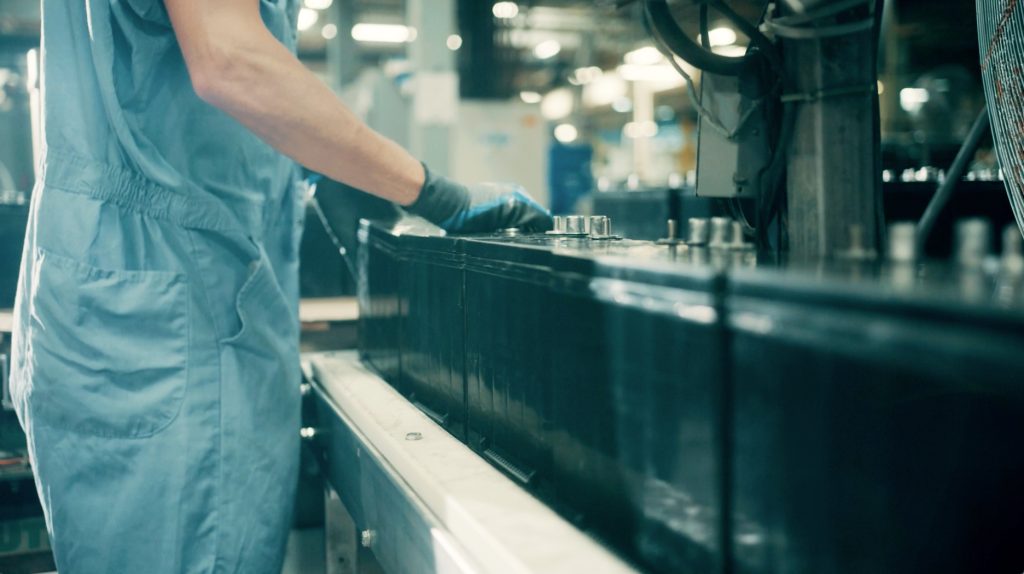
One of the biggest takeaways from recent years has been the importance of a strong domestic supply chain. Many companies were hit hard when ports were closed, leaving valuable raw materials and finished goods to languish in shipping containers. As trade routes reopen and production levels begin to approach pre-pandemic levels, some organizations are taking this opportunity to reevaluate sourcing.
While overseas suppliers may be able to offer products at a lower cost, there are significant benefits in working with a domestic battery manufacturer of lead-based automotive, truck and SUV batteries.
Market Readiness
Most manufacturers forecast their production capacity to ensure they have sufficient supply for their customers. Because batteries have a shelf life, it is important that they make their way from the manufacturer to the consumer as quickly as possible.
When importing batteries from an overseas manufacturer, it can take at least 30 days to deliver the shipments to port, then another 30 days for transit. Even more time is added to deliver products to distribution centers and on to their final retail destinations. By working with a domestic battery manufacturer, distributors and retailers can be assured that their orders will be filled as scheduled. Transit times are greatly reduced as shipments would be coming from another part of the country instead of overseas.
Shorter transit times also mean lower freight costs. With rising fuel prices and driver shortages, minimizing these costs can have a significant impact on a company’s bottom line. Shorter lead times also allow for the ability to carry less inventory. Companies often order larger quantities because of the time it takes to transport products from overseas. Carrying less inventory not only lowers holding costs at the distribution centers but also prevents the lead batteries from needing to be boosted before being shipped to stores.
Shorter lead times also allow for greater marketing flexibility. Brand naming strategies can change. Packaging and labels can be updated to showcase different features. A U.S.-based battery partner is better able to assist with quick changes. Domestic partners can also provide marketing support to help retailers with messaging and content to showcase their product portfolio.
Program Support
Marketing assistance is just one aspect of support battery retailers need.
Category management services provide a framework to help determine the types of batteries and the amount of each that will sell in a timely manner. Driving sales minimizes the number of aging batteries sitting on the shelves in the distribution center. U.S-based partners have better access to the information necessary to help form these strategies.
When retailers have questions about the technical applications of a battery, they want answers from the engineers who designed them. Time zones and language barriers can be obstacles to overcome when working with a foreign supplier. It’s easier to call a partner located on the other side of the country than one on the other side of the globe.
Management of used batteries is another key area of support. Lead can be continuously reused without losing any future performance capacity. Lead batteries are the most recycled consumer product in the U.S, with a 99 percent recycling rate. Most domestic battery manufacturers have relationships with recyclers to ensure cores are collected and processed to continue the circular economy that drives the lead battery industry.
Higher Environmental and Safety Standards
Recycling is one of many important standards for U.S-based lead battery manufacturers.
Modern manufacturers are keenly aware of the environmental impact of their operations. Air emissions from lead battery production are less than one percent of total U.S. lead emissions. There are numerous federal, state and local regulations to follow to protect the air, water and land around their facilities. U.S. manufacturers adhere to these standards because of their commitment to the communities where they operate.
A domestic supply chain also decreases greenhouse gas emissions produced during transit. About 90% of global trade is transported by sea, and carbon emissions from shipping account for almost 3% of the world’s carbon dioxide levels. The Environmental Protection Agency and the Department of Transportation establish standards for greenhouse gas emissions and fuel economy for the transportation industry in the U.S. Many transit companies are actively working to improve their fleets to meet net-zero carbon goals.
The health and safety of their employees are also essential to U.S. battery manufacturers. The Occupational Safety and Health Administration (OSHA) not only sets standards for companies to maintain safe working environments but also provides training and assistance. The lead battery manufacturing and the adjacent recycling industry employs almost 25,000 workers, paying 28 percent higher salaries than many other private industry sectors. The work of these men and women is essential to the U.S. economy, supporting almost $11 billion in gross domestic product.
Conclusion
Investing in a domestic partnership allows distributors and retailers to move higher-quality products to the stores faster to better serve their customers’ needs. Operational support from a committed manufacturing partner readily available to answer questions and offer assistance can help companies refine or shift their go-to-market strategies and improve sales. Domestic supply chains also allow organizations to reduce their carbon footprint and help meet corporate sustainability goals by minimizing the distance products travel from the manufacturer to the end-user.
Strong domestic partnerships benefit more than just the companies involved. Partnering with U.S.-based manufacturers creates a positive ripple effect on the economy. For every $1.00 spent in manufacturing, there is a total impact of $2.68 on the overall economy. By working together, battery manufacturers, distributors and retailers will keep our domestic supply chains strong and the U.S. economy healthy well into the future.
William Nonnamaker, Vice President of Sales, Transportation







